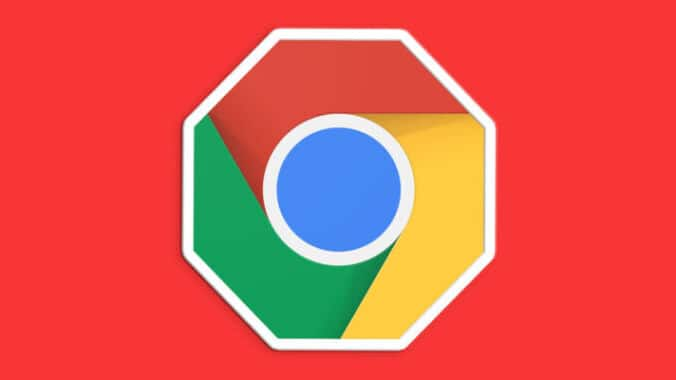
How Google Chrome's upcoming update threatens your ad-free browsing experience
What's the story
Google Chrome is on the brink of launching its long-awaited new browser extension platform, Manifest V3 (MV3), after six years in development.
The first signs of this impending change have been noticed by users of uBlock Origin, a widely-used ad-blocking extension.
Recently, Chrome users have received warnings stating "This extension may soon no longer be supported," and are being advised to "Remove or replace it with similar extensions" available on Chrome's Web Store.
MV3 implementation
Chrome's MV3 set to become mandatory for extensions
The introduction of MV3 is part of Google Chrome's strategy to make it compulsory for extensions running on its platform.
Google first unveiled plans for MV3 in 2018, indicating that the older version, Manifest V2 (MV2) extensions, would be phased out starting early June on the Beta, Dev, and Canary update channels.
Users will have the option to manually re-enable MV2 extensions "for a short time," but Google has cautioned that "over time, this toggle will go away as well."
Security dispute
Google's MV3 update sparks controversy
Google has promoted its new extension platform as a means of "improving the security, privacy, performance, and trustworthiness of the extension ecosystem."
However, this assertion has been challenged by the Electronic Frontier Foundation (EFF), which strongly disagrees with the security aspect.
Mozilla, creator of the Firefox browser, looks to support V3 extensions for cross-browser compatibility but does not intend to discontinue support for V2 extensions.
Ad blocker impact
Ad blockers face changes under Google's MV3 platform
Google has clarified that it "isn't killing ad blockers" but "making them safer," as per an explanatory blog post.
In November 2023, Google touted MV3's ability to handle more dynamic ad-blocking rules.
However, the platform's prohibition of "remotely hosted code"—the backbone of most ad blockers' filtering lists—has raised concerns.
This means ad blockers will need to undergo Chrome Web Store review for every list update, a process that could potentially slow down the effectiveness of these extensions.
Extension replacement
Google Chrome urges users to replace uBlock Origin
Before the MV3 rollout, Google has revealed that 85% of active extensions in its store had MV3 versions ready.
Raymond Hill, uBlock Origin's creator, stated that there will not be a full version of uBlock Origin compatible with MV3.
Instead, a "Lite" version has been developed that is "a pared-down version of uBO with a best effort at converting filter lists used by uBO into a Manifest V3-compliant approach."
Now, Google is asking users to remove or replace uBlock Origin.
Extension disabling
MV2 extensions to be gradually disabled by Google
All extensions built on MV2 will show a warning on the Chrome extensions page if users have updated to Chrome version 127.
Users of Chrome's Beta, Dev, and Canary channels have been seeing these warnings since June.
Although users can temporarily re-enable their MV2 extensions, Google plans to gradually disable these extensions over the next few months.
Eventually, users won't be able to use MV2 extensions and will have to switch to MV3 alternatives suggested by the Chrome Web Store.
MV3 rollout
Google's MV3 switch completion targeted for early 2025
Google is pushing forward with its plan to fully implement Manifest V3 (MV3) by early 2025.
While the broader user base will adapt to the MV3 standard by early next year, businesses utilizing specific policies to manage MV2 extension availability will have a longer grace period until June 2025.
Introduced in December 2020 with Chrome 88, MV3 has imposed technical limitations on extensions, necessitating developers to create simplified versions with reduced functionalities.